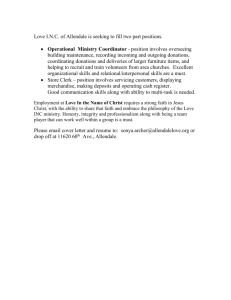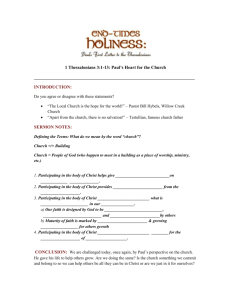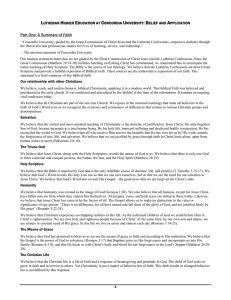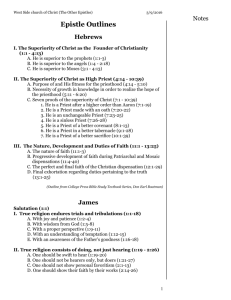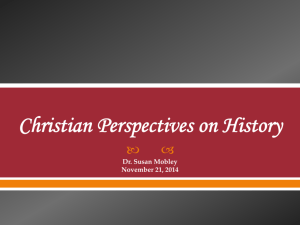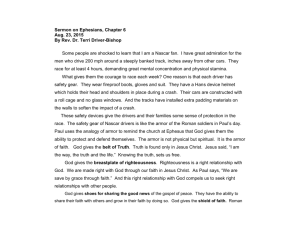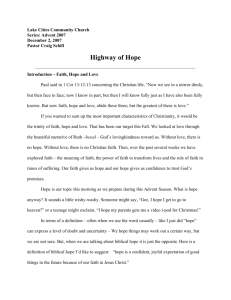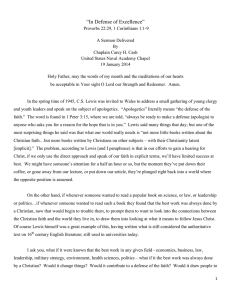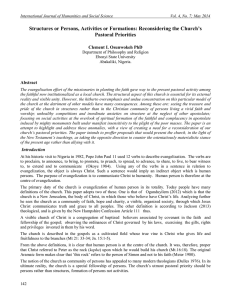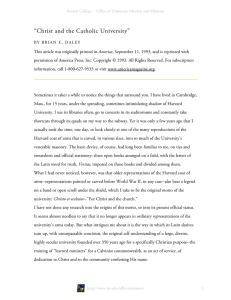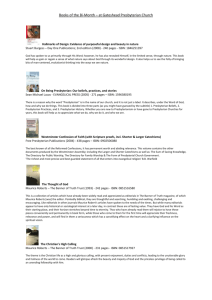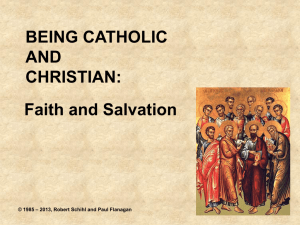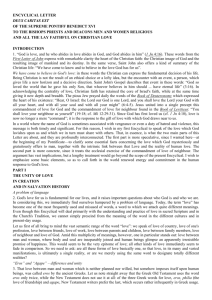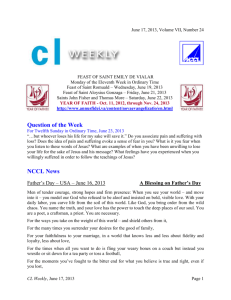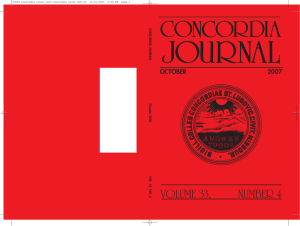Unit 8 Quiz - Saint Mary's Press
advertisement
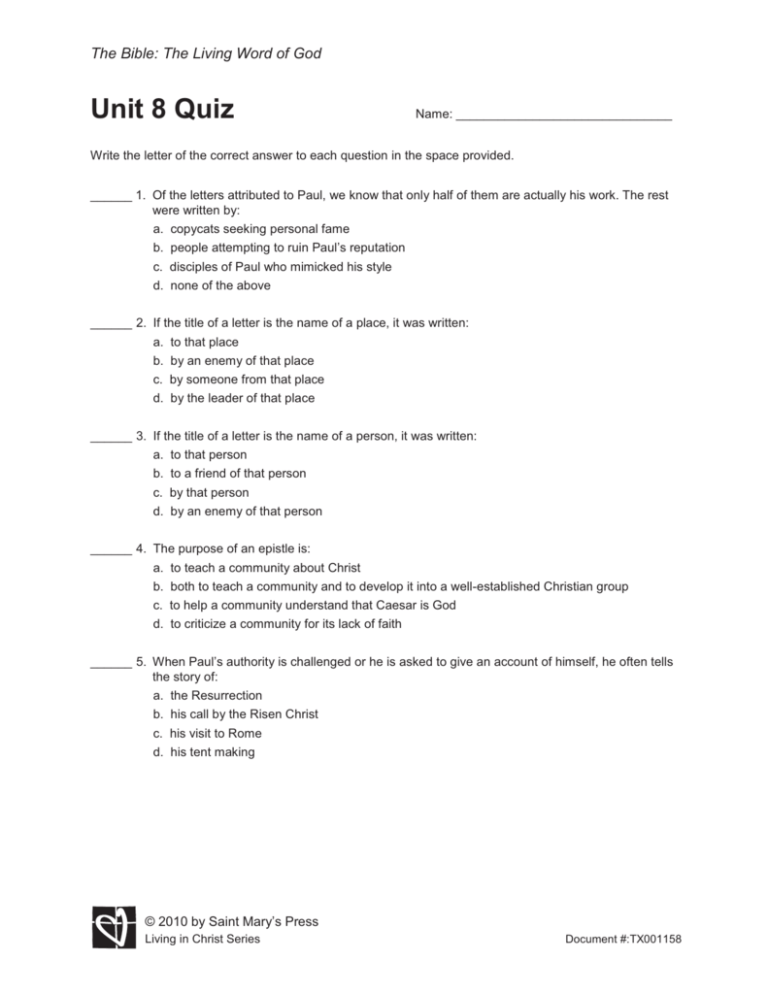
The Bible: The Living Word of God Unit 8 Quiz Name: _______________________________ Write the letter of the correct answer to each question in the space provided. ______ 1. Of the letters attributed to Paul, we know that only half of them are actually his work. The rest were written by: a. copycats seeking personal fame b. people attempting to ruin Paul’s reputation c. disciples of Paul who mimicked his style d. none of the above ______ 2. If the title of a letter is the name of a place, it was written: a. to that place b. by an enemy of that place c. by someone from that place d. by the leader of that place ______ 3. If the title of a letter is the name of a person, it was written: a. to that person b. to a friend of that person c. by that person d. by an enemy of that person ______ 4. The purpose of an epistle is: a. to teach a community about Christ b. both to teach a community and to develop it into a well-established Christian group c. to help a community understand that Caesar is God d. to criticize a community for its lack of faith ______ 5. When Paul’s authority is challenged or he is asked to give an account of himself, he often tells the story of: a. the Resurrection b. his call by the Risen Christ c. his visit to Rome d. his tent making © 2010 by Saint Mary’s Press Living in Christ Series Document #:TX001158 Unit 8 Quiz Page | 2 ______ 6. According to one or more letters from Paul, which early Christian community was divided when celebrating the Eucharist and filled with problems due to the contradictions between the cosmopolitan Greek culture and the message and spirit of Jesus Christ? a. Corinth b. Thessalonica c. Rome d. Galatia ______ 7. The typical format of Paul’s letters includes all of the following except: a. identification of the sender b. a thanksgiving c. advice pertaining to the specific problems in the community to which he is writing d. a thorough telling of Jesus’ life and teachings ______ 8. Those letters definitely written by Paul are known as: a. primary b. catholic c. secondary d. pastoral ______ 9. Those letters most likely written by disciples of Paul are known as: a. primary b. catholic c. secondary d. pastoral ______10. Identify the following topics that provided obstacles for the Apostles with the spreading of the Gospel to the Gentiles: a. circumcision b. Mosaic Law c. eating restrictions d. all of the above ______11. In his First Letter to the Thessalonians, Paul urges Christians not to grieve for their loved ones who have died as do those without hope, because Christians who have died should be considered to have: a. fallen asleep in Christ b. been saved from persecution c. received a second chance at Heaven d. received no chance of Heaven © 2010 by Saint Mary’s Press Living in Christ Series Document #: TX001158 Unit 8 Quiz Page | 3 ______12. The epistles that contain a universal message for all Christians regardless of community, culture, or geographical location are known as: a. primary b. Christian c. secondary d. catholic ______13. Central to all the epistles are the following three main concepts that describe a life that mirrors Christ’s: a. faith, love, and the pursuit of happiness b. way, truth, and life c. faith, love, and charity d. faith, hope, and love ______14. Regarding unbelievers, Paul urges his friends in Corinth and Philippi to live in solidarity with those who believe differently from them. He argues this is the best way to live a Christian life because: a. Jesus preached the equality of all, and God will deal with unbelievers in his own time. b. The fate of unbelievers is entirely up to human beings. c. God does not like unbelievers and will like Christians less if they associate with unbelievers. d. God is indifferent to this situation. ______15. Throughout his two most famous works, Paul argues that to gain salvation, one needs: a. faith in Jesus alone b. good works in either small or large amounts c. both faith in Christ and good works in some amount d. neither faith nor good works; we have no control over our destiny © 2010 by Saint Mary’s Press Living in Christ Series Document #: TX001158





